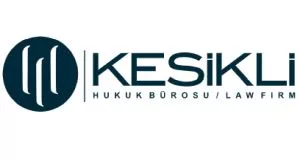In the increasingly interconnected global economy, companies engaged in international trade must navigate a complex landscape of regulatory requirements, including U.S. and EU sanctions and export control regimes. While it might appear that these rules primarily apply only to residents and nationals of the countries implementing the sanctions or regulations, the reality is quite different. A nexus justifying the application of these laws can be established even if the parties involved are not based in the U.S. or EU. These laws play a crucial role in maintaining national security and furthering foreign policy objectives, yet they also present significant challenges for businesses operating internationally. Understanding how these regulations apply to Turkish entities is essential to avoid legal pitfalls and ensure compliance.
1. Distinction Between Sanctions and Export Controls
Sanctions are political and economic decisions taken by countries to restrict activities that may relate to trade, investments, and other sectoral or individual activities against specific countries, entities, or individuals. They are typically used to achieve foreign policy objectives, including human rights protection or deterrence of illegal activities.
Export controls, on the other hand, primarily regulate the export, re-export, and transfer of specific technologies, goods, software, and services considered sensitive for reasons including national security, non-proliferation, and foreign policy. These controls can be broad, covering various categories of items, or very specific, focusing on particular products.
2. Relevant Authorities and Legislation
United States: The Office of Foreign Assets Control (OFAC) administers and enforces economic and trade sanctions based on U.S. foreign policy. The Bureau of Industry and Security (BIS), under the U.S. Department of Commerce, oversees U.S. export controls through the Export Administration Regulations (EAR).
European Union: The European Council enforces sanctions that are implemented by member states, including restrictions on trade, financial transactions, and other business activities. Export controls within the EU are coordinated under the EU Dual-Use Regulation, which controls the export of dual-use items.
3. Sanctions and Export Controls
Sanctions can vary widely but typically include:
- Trade restrictions, such as embargoes on goods and services.
- Financial sanctions, including asset freezes and restrictions on access to financial markets.
- Sectoral sanctions, targeting specific sectors like the energy, military, or financial services industries.
Export controls often list specific goods and technologies subject to regulation, requiring companies to obtain licenses before they can export or re-export controlled items.
4. Applicability to Turkish Companies / Nexus for Applicability
For U.S. and EU sanctions and export controls to apply to Turkish companies, several potential connections or "nexuses" can establish applicability:
- U.S. or EU Origin Goods and Technology: If a Turkish company uses products, technology, or services originating from the U.S. or the EU, the regulations of those jurisdictions will apply, especially if these items are re-exported to embargoed countries or regions.
- Transactions Involving U.S. or EU Financial Systems: Engaging in transactions that pass through U.S. or EU financial systems (such as transactions in USD or EUR that are cleared or settled through U.S. or EU banks) can expose Turkish businesses to the respective sanctions and controls.
- Business with Sanctioned Entities and Individuals: If Turkish companies deal directly or indirectly with entities or individuals that are on U.S. or EU sanctions lists, they must comply with the applicable sanctions regulations.
- Operations in or Dealing with Sanctioned Countries: Any business operations or transactions that involve countries subject to U.S. or EU sanctions can trigger compliance obligations.
Illustrations and Examples
- Technology Export Example: A Turkish technology firm develops software using U.S.-origin encryption technology. If the firm intends to export this software to a country under U.S. embargo, it must first obtain a U.S. export license per the Export Administration Regulations (EAR).
- Financial Transaction Example: A Turkish bank processes payments for oil purchased from Iran. If these payments are conducted in U.S. dollars, the transactions would typically need to pass through U.S. financial institutions, thereby subjecting the Turkish bank to U.S. sanctions against Iran.
- Component Re-export Example: A Turkish manufacturer of electronic equipment uses EU-origin capacitors in its products. If the company sells these products to a firm in Russia, particularly to military end-users, it must comply with EU export controls and possibly obtain export licenses due to the sensitive nature of the end-user and destination.
- Indirect Dealing Example: A Turkish trading company acts as an intermediary in the sale of agricultural products from a sanctioned entity in Syria. Even if the trading company does not directly interact with the sanctioned Syrian entity, this indirect involvement would necessitate compliance with EU sanctions.
Understanding OFAC Designations
It's important to note that even in situations where U.S. laws do not explicitly apply to a company, U.S. authorities, particularly the Office of Foreign Assets Control (OFAC), may designate individuals or entities involved in transactions that support strategic areas of concern. This designation process involves identifying and listing parties who are believed to engage in activities that threaten U.S. national security or violate its foreign policy objectives. Once designated, these individuals or entities become subject to restrictions and sanctions, effectively prohibiting U.S. persons and companies from conducting business with them. This underscores the need for diligent compliance efforts to avoid engaging in potentially sanctioned activities inadvertently.
5. Steps for Compliance: How to Avoid Sanctions and Export Control Violations
Compliance Programs: Implement comprehensive compliance programs that include training for employees, routine checks, and internal controls.
Regular Compliance Audits: Conduct thorough reviews of all international business activities to ensure compliance with relevant sanctions and export controls.
Due Diligence: Conduct comprehensive due diligence on all counterparties and supply chains to identify potential exposure to sanctioned entities or countries.
Compliance Training: Regularly training staff on the requirements of U.S. and EU sanctions and export controls, emphasizing the need to recognize and avoid prohibited transactions.
Legal Consultations: Regularly consulting with legal experts who specialize in international trade law to interpret complex situations and stay updated on regulatory changes.
Use of Screening Software: Implementing advanced screening software to automatically check customers and transactions against international sanctions lists.
Documentation and Record-Keeping: Maintaining detailed records of compliance efforts, including due diligence, training, and license applications, to demonstrate a commitment to compliance in the event of an audit or investigation
By understanding these connections and following rigorous compliance procedures, companies can navigate the complex landscape of U.S. and EU sanctions and export controls effectively, minimizing risk and ensuring smooth international operations.
6.Conclusion
For Turkish companies operating globally, understanding and navigating the complexities of U.S. and EU sanctions and export controls is not just a regulatory requirement but a strategic imperative. By proactively managing compliance, companies can mitigate risks and foster smooth international operations. Awareness, diligence, and ongoing education are key to maneuvering through these intricate legal landscapes.
The content of this article is intended to provide a general guide to the subject matter. Specialist advice should be sought about your specific circumstances.
We operate a free-to-view policy, asking only that you register in order to read all of our content. Please login or register to view the rest of this article.


